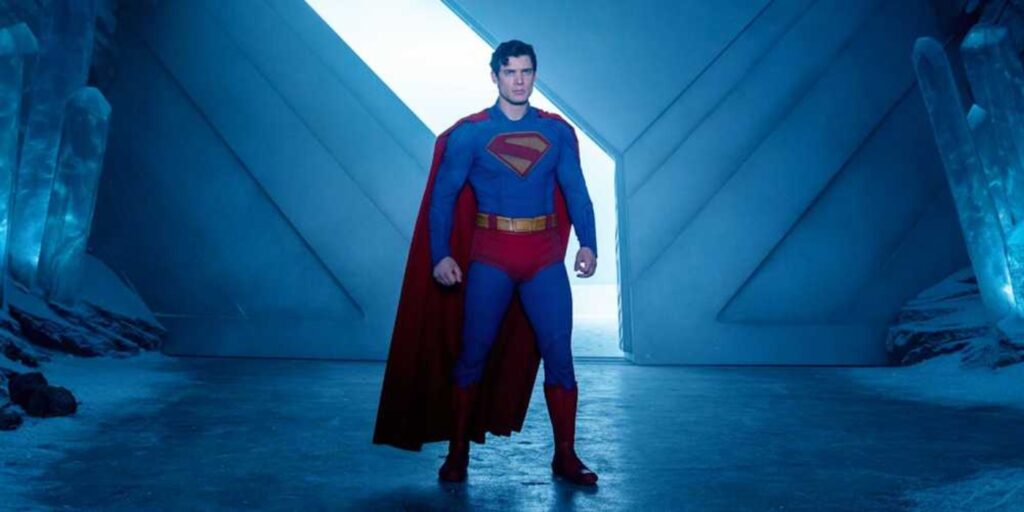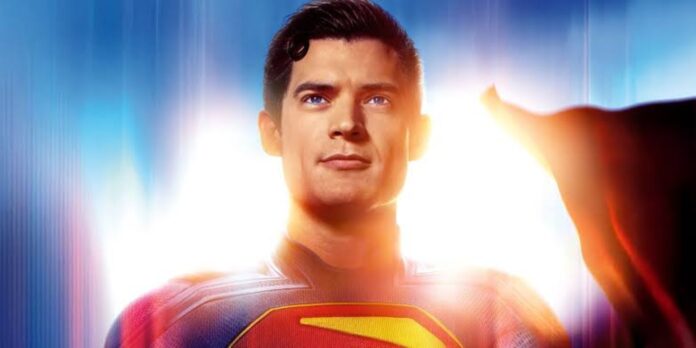Superman has returned not just as a hero, but as a reminder of the power of optimism in storytelling. ‘Superman’ by James Gunn is already one of the most celebrated movies of the year, not merely because it’s a reinvention of an iconic character, but because it dares to believe in goodness at a time when cynicism often dominates pop culture.
Compared to the darker, less polished versions of recent years, David Corenswet’s Superman is a breath of fresh air to the movie industry as a whole, and the audience leaves the theater feeling lighter, more optimistic, and surprisingly emotional. The brilliance of Gunn’s take lies in how fundamentally human the film feels despite being about a godlike superhero. The film is, in a lot of ways, not just a superhero movie. It’s a reminder of why hopeful storytelling remains important.
How ‘Superman’ Makes Optimism Powerful Again

One of the most refreshing things about this movie is its unapologetically classic depiction of good and evil. Modern cinema often leans into moral ambiguity: the anti-hero, the tragic villain, the ‘good’ protagonist. Gunn dismisses that trend completely. His Superman is good, unselfish, tender, and motivating, not because he is perfect but because he always opts to overcome cynicism.
Related: DC Finally Explains The Childhood That Twisted The Joker Forever
His Superman is a non-toxic, masculine role model to a new generation. He is an inspiration to people around him. Lex Luthor, played by Nicholas Hoult, is, however, the complete opposite, filled with ego and insecurity. He’s sharp, charismatic, and utterly irredeemable, delivering one of his most entertaining performances through a mixture of cruelty and comedic self-awareness. The movie does not attempt to excuse him. He is the shadow that makes the light of Superman more significant.
However, ‘Superman’ cleverly does not make its hero a saint. His moment of doubt and the touching exchange with his father add emotional texture. He fights hard enough, and he stands up hard enough, to make his heroism not presumed but achieved. But the most emotionally charged turning point comes with the heartbreaking death of Malik Ali. His death is not used as shock value but as a respectful narrative moment, honored beautifully through Clark Kent’s front-page obituary. It is the emotional anchor of the film.
‘Superman’ Proves Even The Most Powerful People Need Help

James Gunn does not simply talk about hope; he constructs it. The film turns out to be a bright example of persistence, compassion, and solidarity. The death of Malik turns out to be the change agent, as Metamorpho does not want to go on with what Lex tells him to do. Even Guy Gardner chooses to be on the side of the people of Jahranpur. It was the heartbeat of the film.
In case you missed it: How DCU’s New Beginnings Make It A More Consistent Universe Than MCU
Superman is not the only hero; he is the light that helps ordinary people to discover their strength. Lois, Jimmy, Eve, and others demonstrate that courage does not need powers. Their victories, however minor or intimate, are as significant as the fights of Superman. And that is why the ending of Superman is so impactful. The victory feels earned. The characters are emotionally and physically battered, but they do not succumb to bitterness.
In a world that tends to be filled with negativity, the film by James Gunn is a reminder that stories of hope are not going to give us an easy life. They are there to make us believe that our decisions still matter, that good still matters, and that even in the darkness, we can make a choice to be on the light side. Even the mighty Superman requires assistance. In an era where tragic endings are often marketed as “realistic,” Superman takes the opposite stance: hope can be just as real, but it needs effort, compassion, and stubborn optimism.





